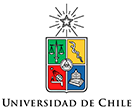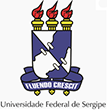Our purpose is to lay out the background of an internationally comparative research on social, technical and organizational innovations supported by local communities, and triggered by environmental crises and/or consciousness. On the basis of analyses of situated or even multi-sited experiments and experiences, whose stakes are local, national or international, it deals with the framing of common interpretations of these facts in a context of globalization. We start anew with questions relating to concepts such as communities, social, organizational and technical innovations, in the case of spatial re-articulations triggered by globalization.
Brazil
This research focuses on a community of shrimp farmers in the north-eastern part of Brazil. The community activities are at risk of being halted in the mangrove zones, since the Brazillian authorities deem them to be protected territories because of their marine diversity. After being taken to court, these farmers asked the fishing engineers of the Sergippe University to help them find a technical answer to their problem. Thus, a partnership was born between the community and the researchers to find answers both technical and social to this question. This is an opportunity to study the making of a public issue related to an environmental problem, which involves many facets such as economy, environment, social matters and science.
France – Growing communities using food basket distribution systems
The alternative “food-baskets” distribution systems, which are part of the “Raccourci” collective, located in Lyon and its conurbation are our field of study. This type of “farm to table” circuit which bring together producers and consumers is aiming at “short circuiting” the agricultural productivity model used worldwide and to help “maintain farm agriculture” (CSA). The originators of the “baskets” also aim at creating links between inhabitants of the same neighborhood, as well as between consumers and their environment etc. The “baskets” are a source for shared action which is used as a resource against the worldwide environmental crisis, as well as against other sources of unrest (economic, social, etc.).
This leads us to ask how those “baskets” allow for the proliferation of communities. We aim to reference the diversity of groups which gather around these alternative food distribution systems. These groups vary in size and scope. There may be groupings of neighbors, producers and consumers (which are created at the time of food distribution, of farms visits or during meetings), as well as groups of organizations located on the same territory (such as Labruyère51, Raccourci, PIRAT, PTCE) or on larger scales (such as MIRAMAP which is the French National federation of CSA -, or Urgenci which is the international network of CSA.)
USA – Ecovillage at Ithaca
Ecovillage at Ithaca is a life community numbering 100 families which is located in the New York state of the USA and relies on ecological principles for its functioning. It sprung up in 1996 and has been steadily expanding since then. Our project, which is a part of COMVIT, relies on participant observation to study the differences between manifestations of links to the environment within the community, which play a part in cementing an art of inhabiting a place (discussing technical choices for the assembly, collective property, innovative social organization…). The investigation relies on unstructured interviews of community members, as well as on literature reviews on the ecovillage and the researches focusing on the context of its expansion which include studies on both state public policies, and relations with the neighborhood.
Chili
The Chiloe archipelago is one of the five provinces of the tenth lake region in Chile and a research field which will be investigated in the course of the COMVIT project. It is renowned for its exceptional biodiversity, both fauna and flora. From the nineties onward, Beatrice Maurines has been studying the transformations of a rural traditional society, which economy depended on the articulation between fishing, on-site gathering and small farming agriculture, toward the establishment of a salmon farming cluster, which was responsible, for Chile, of becoming the world’s second salmon producer in less than twenty years, starting from nothing. A sanitary, economic and environmental crisis began somewhere between 2006 and 2008 and has been ongoing since then. It has led to massive awareness and public causes being raised : environment protection, wage labor… which are championed by local NGOs such as Canelo de Nos as well as by national and international NGO’s.
F.Derbez studied the employment crisis in the Canelo de Nos before joining the COMVIT team during the 2013 autumn.
For both these researchers, a return to this shared field of research finds its origin in the aim to understand how these local traditional populations (ethnic groups such as the Huilliche, peasantry and traditional fishers) react to such large scale economic and environmental crisis. Do they go back to a less urban style of living? Do they rely on alternative and innovative professional practices? What part are the institutions (NGOs, local authorities, State) playing in these processes?
The COMVIT research project tackles these questions by deliberately studying the impact of multimodal crisis, which have an impact on the way of life and on what defines life and work communities. This effects are more apparent when studying peasantry. We can account for local emerging projects such as agrotourism and bio agriculture in farms or the development of new distribution methods (collective market, touristic restaurants, agri-cultural roads). The authorities do not support these organisational and social innovating projects, as they are more interested in developing a conventional agriculture.





